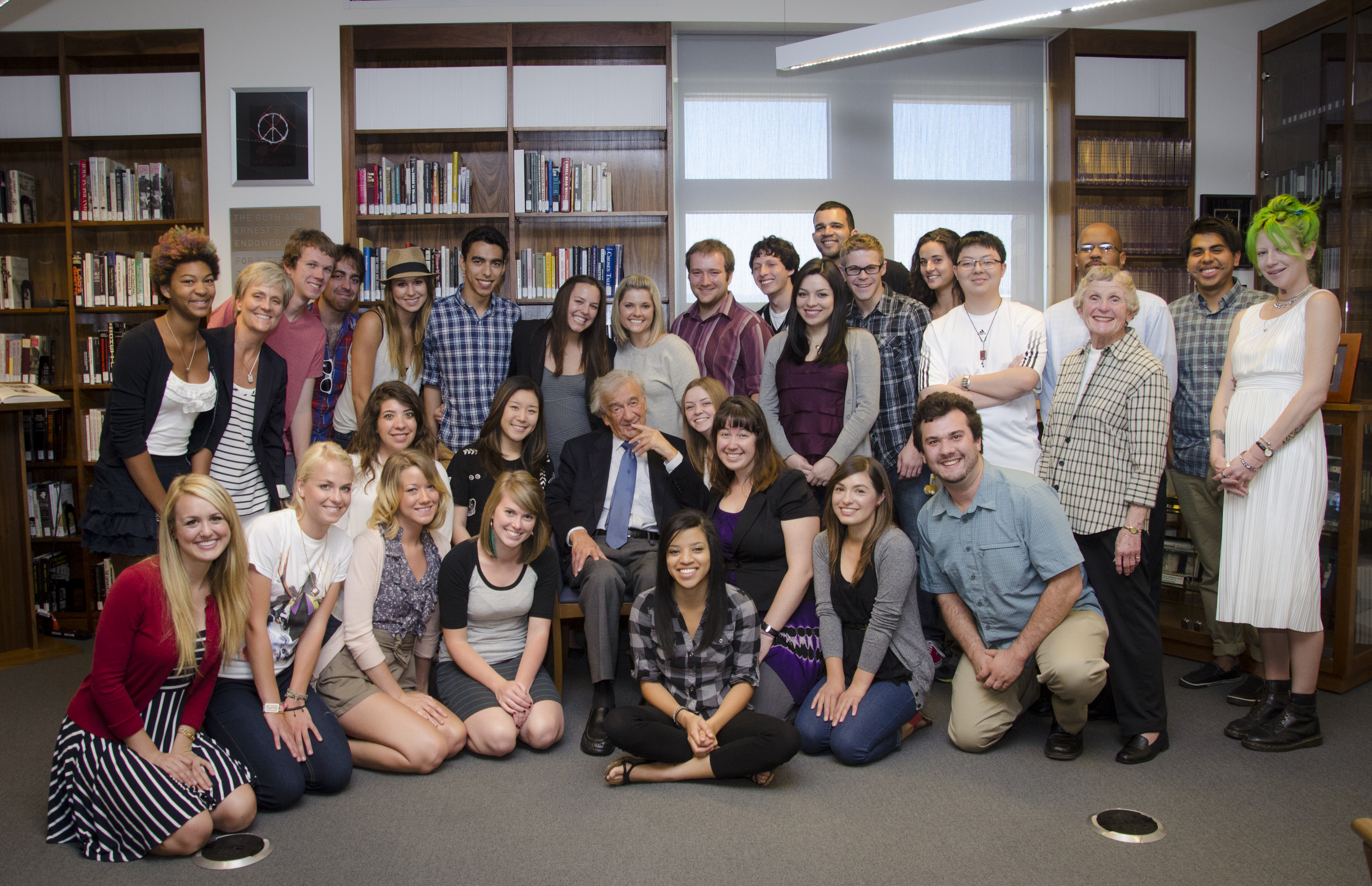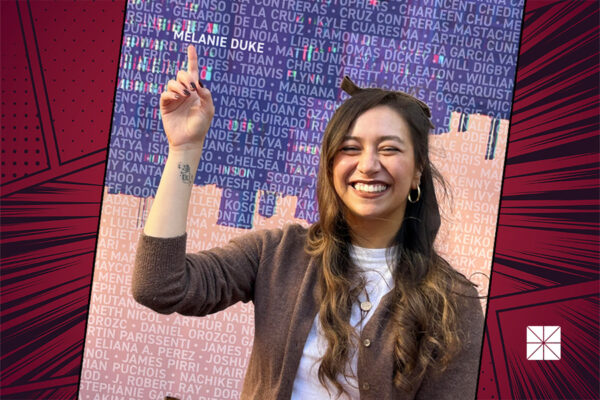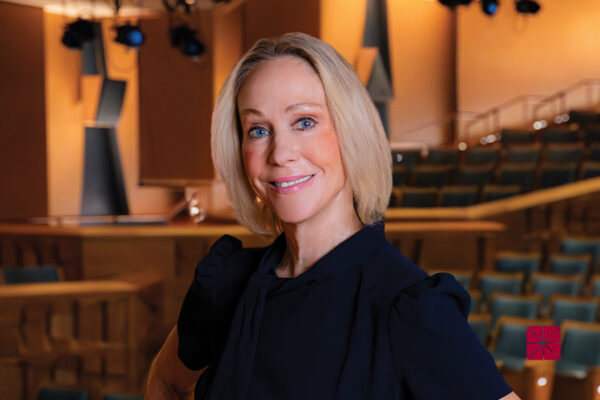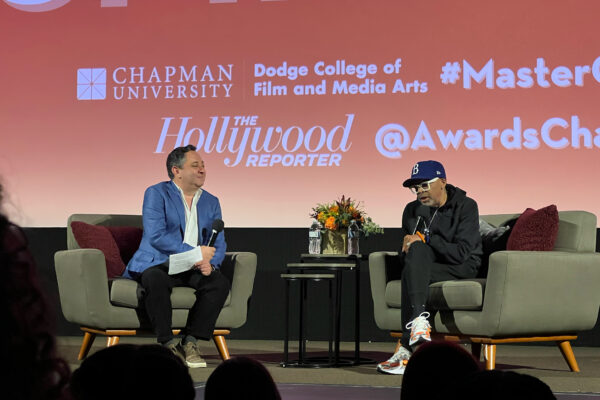Continue the battle against human suffering with action and hope so that the world may someday be free of atrocities and genocides, Nobel Laureate, author and Holocaust survivor Elie Wiesel said at Chapman University’s annual Evening of Holocaust Remembrance, held Thursday, April 19.
“Hope is a beginning. Hope is the only beginning,” Wiesel told the packed Memorial Hall audience of students, faculty, staff, the public and some 100 Holocaust survivors and their families.
Wiesel’s reflections at the public remembrance were part of his annual weeklong visit to campus as a Distinguished Presidential Fellow. The evening ceremony included performances from students in the Conservatory of Music, as well as readings by students from Chapman and first prize recipients in the annual Holocaust Art and Writing contest, and the traditional lighting of six commemoration candles, representing the 6 million who perished in the Holocaust.
In addition, President Jim Doti announced that Irving and Nancy Chase had endowed The Irving and Nancy Chase Professorship in Jewish History, bringing to 51 the number of endowed professorships at Chapman.
Wiesel’s Thursday evening reflection was titled “Why Remember?” and was a high point of a week built around a series of conversations focused on four profound questions central to Wiesel’s work: Why Study? Why Write? Why Be Just? and Why Believe?
Addressing the “Why Remember?” question Thursday evening, Wiesel said he feels called not just to honor the memories and lives of those who perished or suffered in the Holocaust out of respect, but to also turn memory into action.
“I will not allow their deeds to become the last words. The last words are ours,” he said.
Citing the places around the globe where strife and atrocities continue, Wiesel lamented that “the world has not learned” the lessons of the past and urged all to continue the effort. He urged determination.
“We continue,” he said.
Upon concluding his week at Chapman, Wiesel traveled to Washington, D.C. and New York for additional Holocaust remembrances and commemorations. On Monday, April 23, he joined President Obama in the Holocaust remembrance held at the United States Holocaust Memorial Museum near the National Mall in the nation’s capital. There he introduced president, who presented a major address.
That afternoon Professor Wiesel participated in a panel at the United Nations on the 50th anniversary of the Adolf Eichmann trial. Eichmann was the Nazi officer who was one of the main organizers behind the systematic mass deportation and murder of European Jews during the Holocaust.
Wiesel first visited Chapman University in April 2005, when he took part in dedication ceremonies for the university’s Sala and Aron Samueli Holocaust Memorial Library. His second visit came in April 2010, when he spoke to the university community and was guest of honor at a gala marking the 10th anniversary of the Rodgers Center for Holocaust Education and the Stern Chair in Holocaust Education. That same year, he accepted a five-year appointment as a Distinguished Presidential Fellow at Chapman University. In that role,Wiesel visits Chapman annually for one week to meet with students and offer his perspectives on subjects.
Wiesel received the Nobel Peace Prize in 1986 for his work as a “messenger to mankind” of “peace, atonement and human dignity.” He is the author of more than 50 books, including Night, a work based on his experiences in the Auschwitz, Buna and Buchenwald concentration camps. He is a faculty member at Boston University.





Add comment